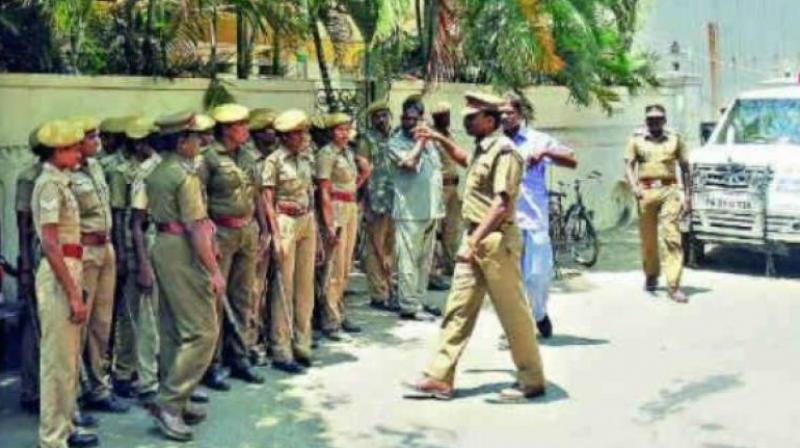Police crack down on Rohingyas in Hyderabad
Around 4,000 Rohingyas are settled in the Rachakonda and Hyderabad police commissionerates limits for the last few years.

Hyderabad: The Telangana police has taken a strict stand against Rohingya refugees who are violating local laws, after receiving a communication from the Centre about the Rohingyas obtaining local identification documents issued by government agencies.
Around 4,000 Rohingyas are settled in the Rachakonda and Hyderabad police commissionerates limits for the last few years. All of them had reportedly crossed over into India from Bangladesh and obtained United Nations High Commission for Refugees (UNHRC) cards.
“Some of those who are not having the UN card were caught and sent back as their stay was illegal. Several others were arrested for obtaining Aadhaar cards, Electoral Photo Identity Card (EPIC) and Indian passport by submitting documents obtained fraudulently,” said a Rachakonda police official.
The Centre along with the UN and the Myanmar government is coordinating the repatriation of the Rohingyas who had crossed over into India to escape “persecution” by the Myanmar Army and local groups. The authorities fear that after obtaining Indian identities, the Rohingyas would move out of their settlements and mingle with locals, posing a challenge in identifying them later on.
“We are gathering information against the Rohingyas who had obtained Indian identity documents fraudulently and used it for various purposes. Action is also being initiated against the agents who had helped them,” the official said.
The Kanchanbagh police registered seven cases against the Rohingyas for obtaining various identity documents while the Balapur police registered 12.
Central intelligence agencies had communicated to the state police about a possible threat.
“A few persons under the garb of refugees may create terror related activities in the country or fall into the hands of the terror groups,” the officials had warned.
The Rohingyas draw sympathy from the local public who make donations.

